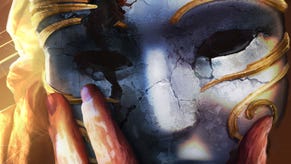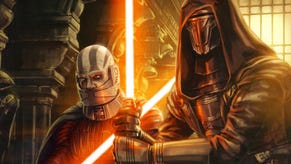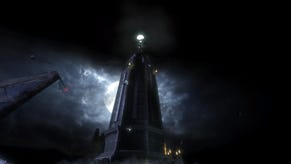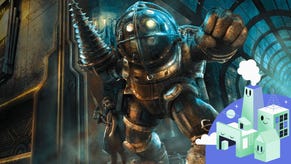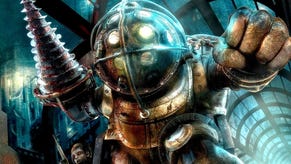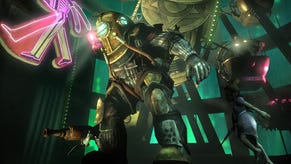Building BioShock
Ken Levine, Bill Gardner and Chris Kline on narrative, creativity, controversy.
You don't need to physically drag your inventory items around, say...
And to be fair, some people may not view that as drudgery. Some people may view it as fun... I love min-maxing in WoW, and I love messing around with my inventory. I mean, why the hell do I like managing my inventory slots in WoW? I don't know, but I do.
I think that we wanted to expand the audience for a first-person shooter, while retaining that hardcore audience. And I think, honestly, really, deep-down, we wanted to popularise this kind of gameplay that we've been attached to for so long. If the first iteration of it was a tiny bit simpler than System Shock 2... How many of these type of games do you think are going to be made now, compared to how many of them were going to be made before? It took us, how many years to get this game green-lit?
Now, future games - competitors' games, our games - we can build upon millions of people's knowledge base. How many people had played these kind of games before? 300,000 or 400,000 maybe? Now it's millions of people, because of this game. It's like with RTS games, if you go back and play Dune 2 - and now look at them! They have build queues, all this complexity - there's Company of Heroes with cover and stuff like that. It's because a system was popularised, and people were willing to invest in it with confidence that there would be an audience.
Before, as great as System Shock 2 and Deus Ex were, nobody bought 'em. We want to crack that - and I think that now, the sky's the limit for how deep these games can go.
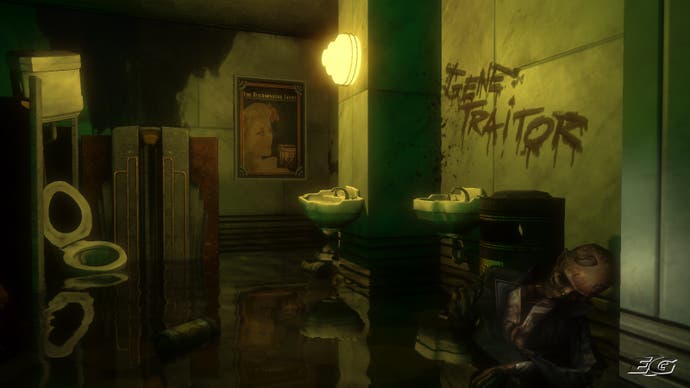
I think it's similar to film - when you got to the point in time where there was an established vocabulary of how you used a camera to show certain things, creativity took off. It wasn't dumbing anything down.
If you showed The Matrix to an audience in 1958, they would not be able to follow one frame of it.
Or to my parents... [Laughs]
There is a language which people have been initiated to, a filmic language. We're now expanding the... Sorry, I don't want to end up sounding like Jonathan Blow or something, but the "gamic" language. The ludic, gamic language! However the hell you want to say it!
I don't really play in that space, talking about games in a very academic way - but I know what people will get, and in BioShock we really tried to push the boundaries of that in a popular first-person shooter that could sell millions of units. Now, they get it - so we can push a little further, and a little further.
It's not to say that the criticism is unfounded, anyway - but nobody's ever been able to explain to me exactly where it comes from. Look, nobody likes the idea of these hardcore guys selling out, or whatever - but I view it the opposite way. We brought such a large audience to this... I can pretty much guarantee you that if BioShock wasn't successful, there never would have been another game like this.
I don't know how we convinced people to pay for BioShock, because these games had never made any money. That's what we were told. Everybody told us when we were pitching BioShock, it sounds like a great idea, you'll sell 150,000 units - next! We managed somehow to sucker our friends at Take-Two to make this game, and god bless 'em, they bit, and they went for it. Now, I think people who like these kind of games can benefit.
I'll tell you exactly what it is, as far as I'm concerned. I looked at all the stuff in System Shock 2, and I thought that the most compelling thing was the atmosphere. Not the game systems, not the min-maxing - if you make a world that people get really lost in, and really immersed in, you can make the world a character - and people want to play the game.
That's what we focused on in BioShock. If we spent resources on anything, it was making Rapture real. That paid off. Most first-person shooters are like, next hallway, next office building, next whatever. You get some things that are very familiar but really well executed, like Call of Duty - where you have these amazing tableaus - but it's downtown Baghdad. Their stock and trade is working on the familiar, and they give you that sort of experience. Our stock and trade was the unfamiliar, and we knew we had to focus on this - on atmosphere, and on a sense of place.
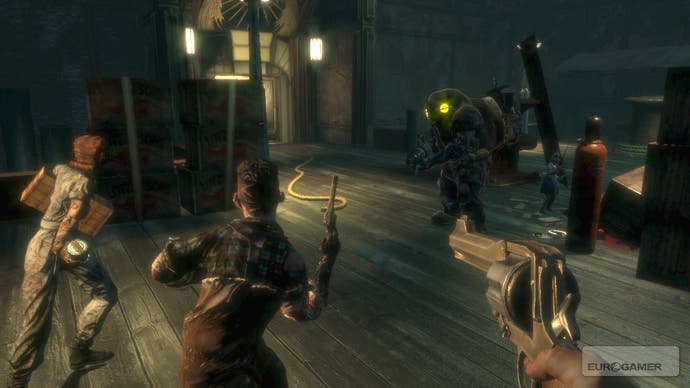
I think that's definitely number one. I think there's definitely an element of luring the player in, easing them into the complexity - almost tricking them, in a way. It's about elegantly introducing players to different mechanics, systems and play styles. The one-two punch is a core example. I don't think that's the kind of thing that any player would ever even think to do.
Step that back for a second. If you said to the player, "first you have to set up an enemy... blah blah"... We found a way to communicate that very simply, the one-two punch - which people are familiar with from boxing. People didn't understand the concept before we presented it that way.
There's a lot of training going on in the game, which people may not even notice. There are all these dynamic messages that pop up in the game, which watch for when the player doesn't get stuff and reminds them. I think if the game came up with a lot of text on the screen - System Shock 1 actually had all that, all the tutorial stuff - people would have had a perception of complexity that they didn't have in this game. What first-person shooter can say, "if you shot this guy in water, he's vulnerable for a period of time and then you can use another weapon, but he may be more vulnerable to this type of damage..." It's just not the lingua franca.
It's a microcosm for the way the whole game was presented. If you look at the first half hour, Jesus Christ is there a lot of stuff we throw at you! The plane crash alone is more than enough to carry some games through the first half-hour. You get the plane crash, the bathysphere, then you've got Rapture, Ryan, the Big Daddy, the splicers, the security bot, the one-two punch, the wrench, plasmids...
Meanwhile, in another game, they're taking Hill 451 after D-Day again. Again, in no way am I dissing that stuff - but they just have an easier job of what story they sell.
It's a much more familiar story.

